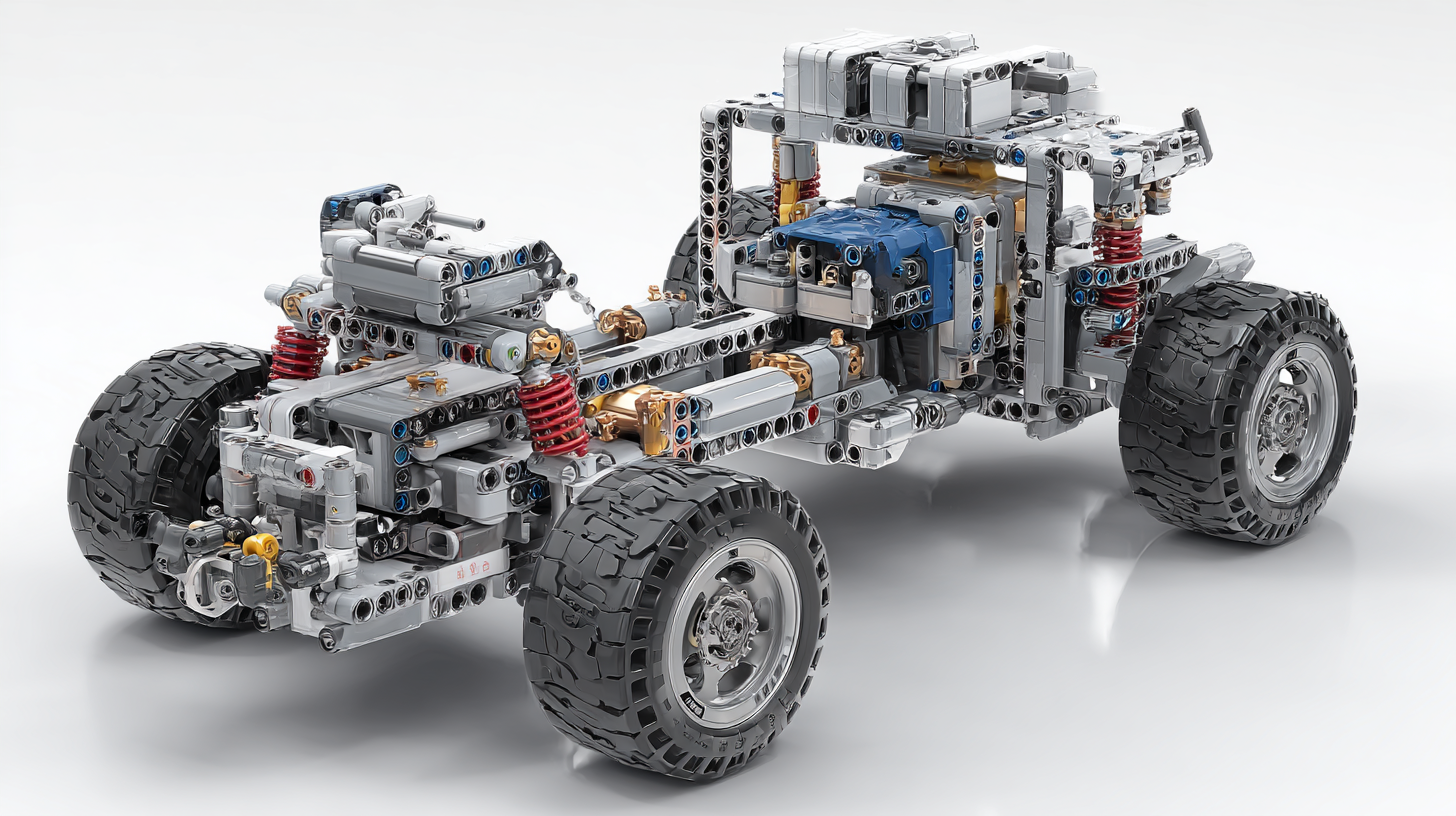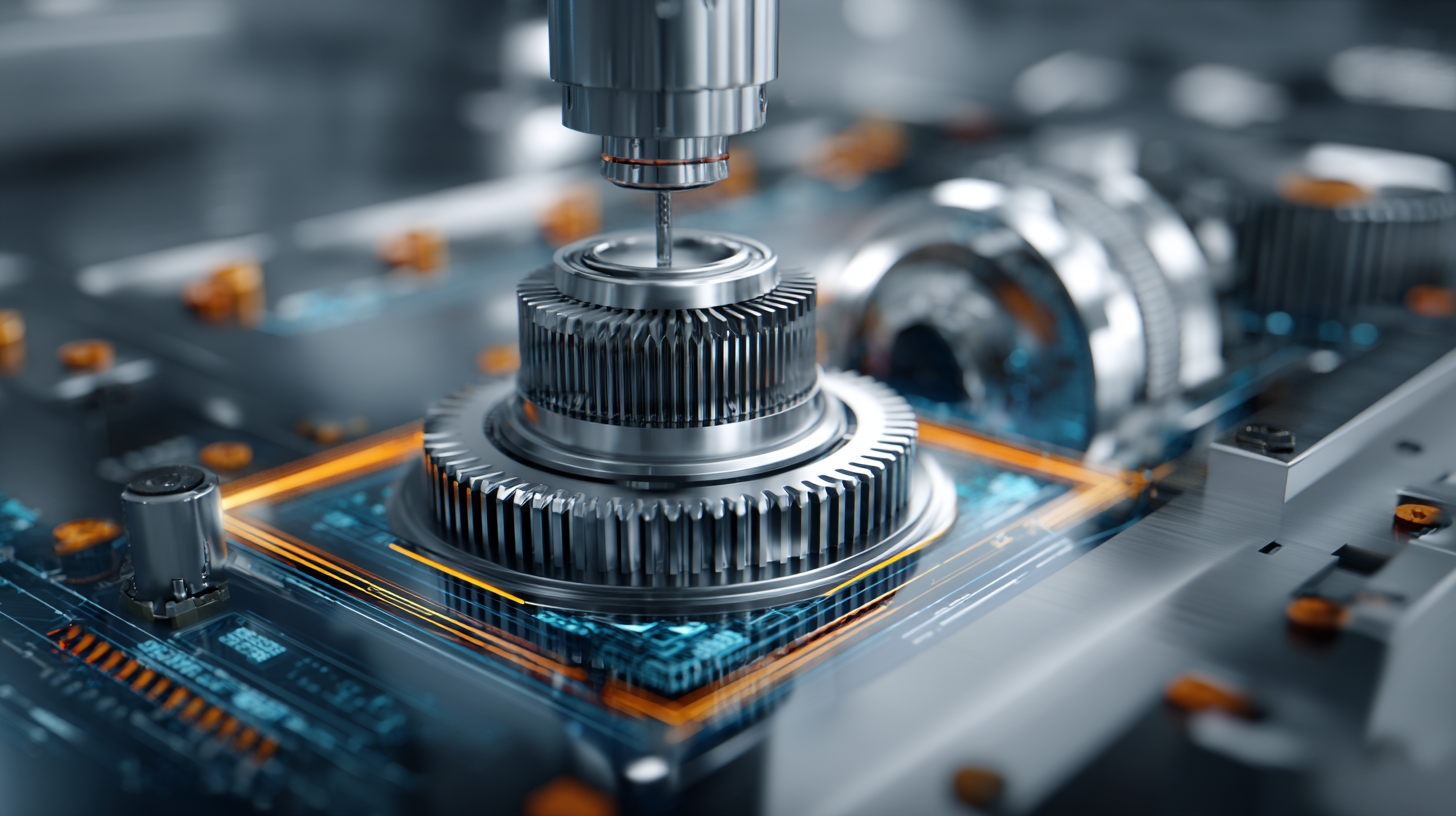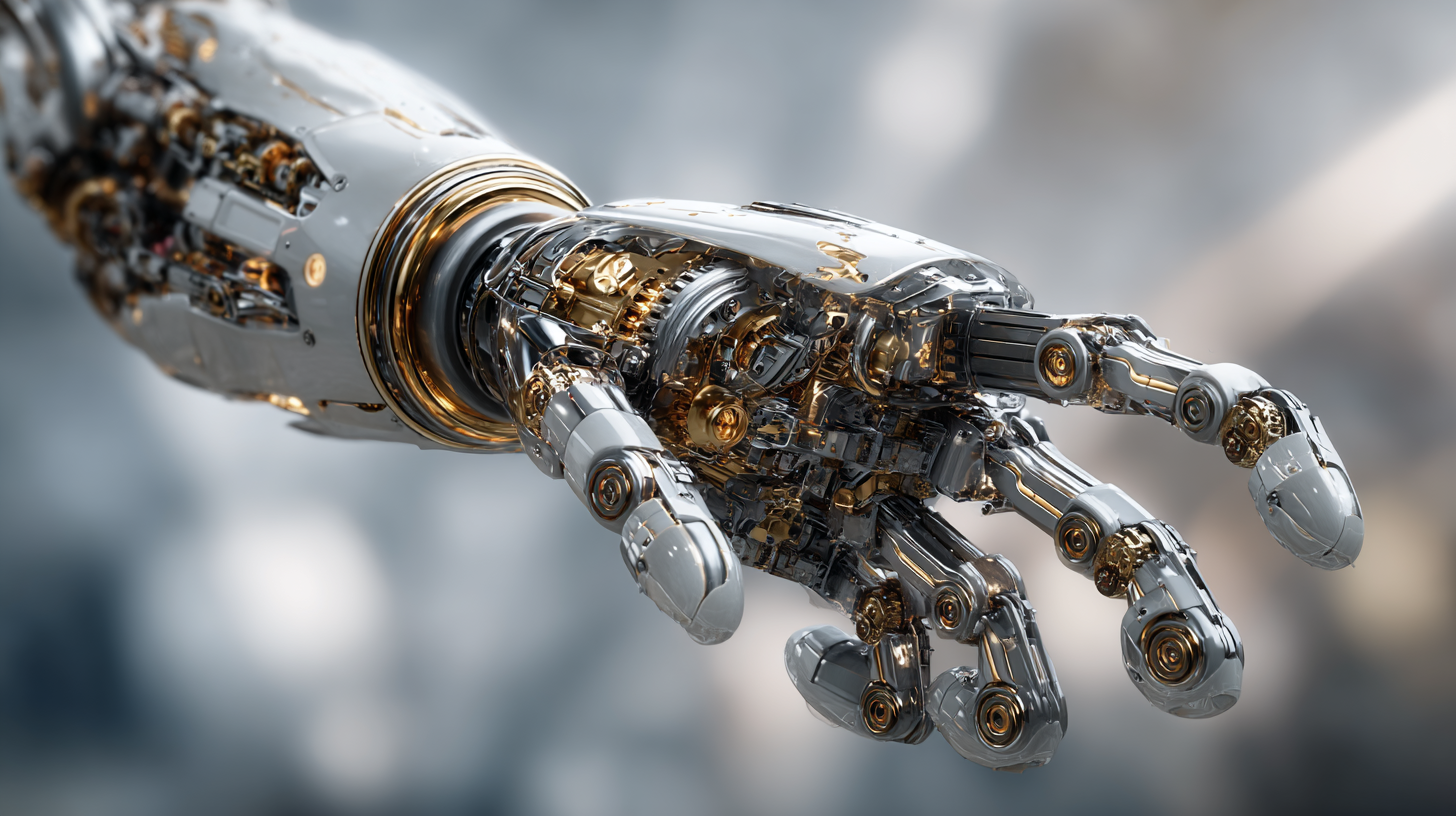Innovative Applications of Best Mechanical Engineering Tech in Modern Industries
In the rapidly evolving landscape of modern industries, the integration of innovative mechanical engineering tech has become crucial for maintaining competitive advantage and operational efficiency. According to a report by the American Society of Mechanical Engineers, the global mechanical engineering market is projected to reach $1.5 trillion by 2026, driven largely by advancements in automation and robotics. As companies seek to harness this technology, finding high-quality suppliers becomes essential to ensure the successful implementation of these cutting-edge solutions. This challenge is further compounded by the growing demand for sustainable practices and customized engineering solutions. Therefore, understanding how to identify and collaborate with reputable suppliers is a vital skill for businesses aiming to leverage mechanical engineering tech effectively and innovate within their respective markets.

Innovative Robotics in Manufacturing: Enhancing Efficiency and Precision
The integration of robotics in manufacturing has revolutionized the industry, significantly enhancing efficiency and precision. According to a report by McKinsey, automation could boost global productivity by up to 1.4% per year, potentially adding $14 trillion to the global economy by 2030. Robotics play a pivotal role in this transformation by streamlining processes, reducing human error, and enabling mass customization, which is increasingly demanded by modern consumers.
Industrial robots, equipped with advanced sensors and AI-driven algorithms, have reached unprecedented levels of accuracy. For instance, a study from the International Federation of Robotics noted that the average industrial robot's precision can exceed ±0.01 mm, making them ideal for tasks requiring high levels of detail, such as assembling intricate components in the electronics and automotive sectors. Furthermore, Robotics Business Review estimates that the global industrial robotics market will grow to $43 billion by 2025, highlighting the increasing reliance on these technologies to meet production demands in an efficient and cost-effective manner.
Innovative Applications of Best Mechanical Engineering Tech in Modern Industries
Robotics in Manufacturing: Enhancing Efficiency and Precision
The Role of AI-Driven Predictive Maintenance in Reducing Downtime
In today's fast-paced industrial landscape, the integration of AI-driven predictive maintenance stands out as a transformative approach that significantly enhances operational efficiency. According to a report by McKinsey, implementing predictive maintenance can reduce equipment downtime by 30-50%, leading to substantial cost savings for industries reliant on machinery. This is especially crucial in sectors such as manufacturing and energy, where unplanned outages can result in losses exceeding thousands of dollars per hour.
AI technologies leverage vast amounts of data generated by machines to identify patterns and predict failures before they occur. For instance, a study published by Deloitte indicates that predictive maintenance strategies can lead to a 10-20% reduction in maintenance costs and extend the lifespan of assets by 20-40%. This capability not only minimizes disruptions but also fosters a more proactive maintenance culture, allowing businesses to allocate resources more effectively and improve overall productivity.
As industries continue to embrace these innovative techniques, the role of AI in predictive maintenance will undoubtedly be pivotal in shaping the future of mechanical engineering in modern industries.
3D Printing: Revolutionizing Prototyping and Production Processes in Various Industries
The advent of 3D printing technology has significantly transformed prototyping and production processes across a multitude of industries. Traditionally, the creation of prototypes was a time-consuming and costly endeavor, often requiring extensive material resources and lengthy manufacturing timelines. However, with 3D printing, designers can rapidly produce prototypes directly from computer-aided design (CAD) files, drastically reducing lead times and costs. This capability allows engineers to iterate designs quickly, facilitating a more agile development process that can adapt to market demands and consumer preferences.
3D printing also revolutionizes production processes by enabling customized manufacturing at scale. Industries such as healthcare have harnessed this technology to fabricate personalized medical devices and implants tailored to individual patients' anatomical needs. Similarly, the aerospace and automotive sectors benefit from 3D printing through the production of lightweight, intricate components that enhance performance while minimizing waste. As material science advances, the range of materials available for 3D printing continues to expand, further solidifying its role as a cornerstone of modern manufacturing. This innovation not only increases efficiency but also opens new avenues for creativity and product differentiation, pushing the boundaries of what is possible in engineering and design.

Sustainable Engineering: Leveraging Renewable Energy Tech for Eco-Friendly Manufacturing
The integration of renewable energy technologies (RETs) into sustainable engineering practices is reshaping modern manufacturing processes. Recent advancements in water desalination illustrate this shift; hybrid processes that incorporate solar and wind energy are gaining traction as promising solutions to environmental engineering challenges, enabling efficient water purification while minimizing carbon footprints. Studies indicate that with the implementation of renewable energy sources, desalination costs can be reduced by up to 30%, paving the way for eco-friendly methods that can meet global water demands sustainably.
Moreover, hydrogen production methods, particularly through water-splitting technologies powered by solar and geothermal energy, are revolutionizing the energy landscape. Reports indicate that renewable hydrogen could see production costs drop significantly, potentially reaching $2 per kilogram by 2030. This transition not only facilitates a cleaner energy matrix but also aligns with broader sustainability goals, emphasizing the critical role of green skills in future job markets. Emerging trends in sustainable engineering highlight the necessity of a circular economy and eco-friendly manufacturing, suggesting that companies must adapt to innovations in renewable energy to remain competitive and responsible in the face of climate change challenges.
Innovative Applications of Best Mechanical Engineering Tech in Modern Industries - Sustainable Engineering: Leveraging Renewable Energy Tech for Eco-Friendly Manufacturing
| Application Area | Technology Used | Benefits | Renewable Energy Source | Impact on Sustainability |
|---|---|---|---|---|
| Manufacturing | 3D Printing | Reduction in material wastage | Solar Energy | Lower carbon footprint |
| Construction | Modular Building Techniques | Faster construction time | Wind Energy | Improved resource efficiency |
| Automotive | Lightweight Materials | Enhanced fuel efficiency | Hydroelectric Power | Reduced emissions |
| Textile | Biodegradable Fibers | Less environmental impact | Geothermal Energy | Sustainable production processes |
| Electronics | Recyclable Materials | Decreased electronic waste | Solar Energy | Promotion of circular economy |
Smart Sensors and IoT: Transforming Data Analytics in Industrial Operations
In today's rapidly evolving industrial landscape, smart sensors and the Internet of Things (IoT) are redefining data analytics and operational efficiency. As per a report by MarketsandMarkets, the IoT in the manufacturing industry is projected to grow from $27.9 billion in 2020 to $89.48 billion by 2025, at a compound annual growth rate (CAGR) of 26.7%. This staggering growth is primarily driven by the increasing integration of smart sensors, which facilitate real-time data collection and analysis, significantly enhancing decision-making processes.

The implementation of smart sensors allows for continuous monitoring of equipment and processes, providing invaluable insights into operational performance. According to a study published by Deloitte, companies utilizing IoT solutions have reported an increase in operational efficiency by up to 20%. This aligns with the growing trend of predictive maintenance, where intelligent sensors detect anomalies and predict failures before they occur, reducing downtime and maintenance costs. As a result, manufacturers are not just improving their bottom lines but are also elevating their overall productivity by harnessing the power of data-driven insights.
